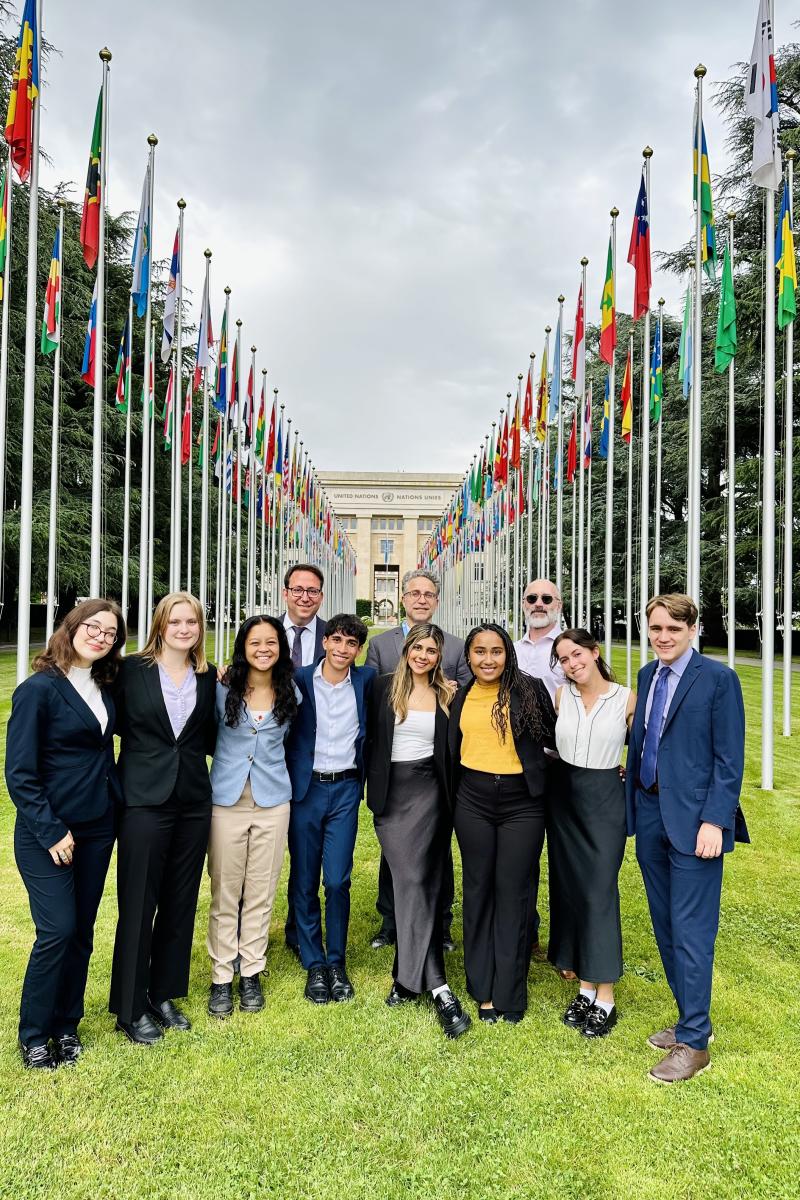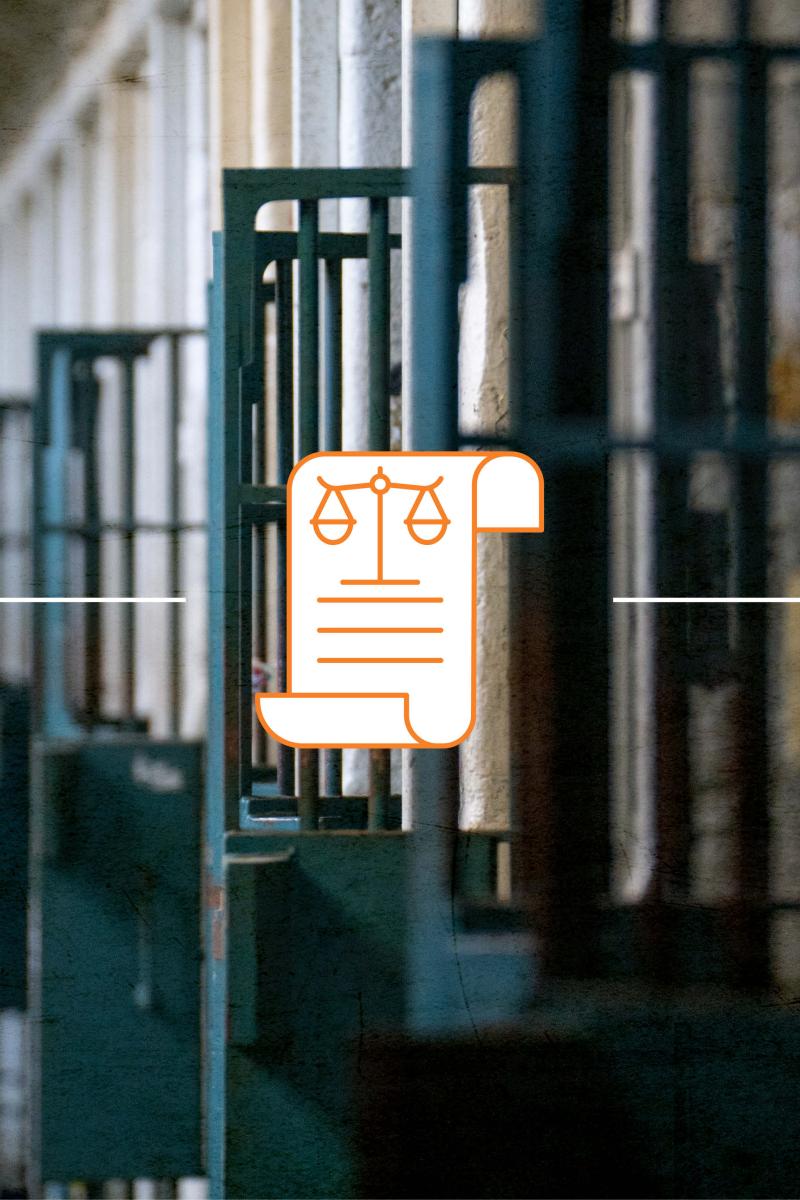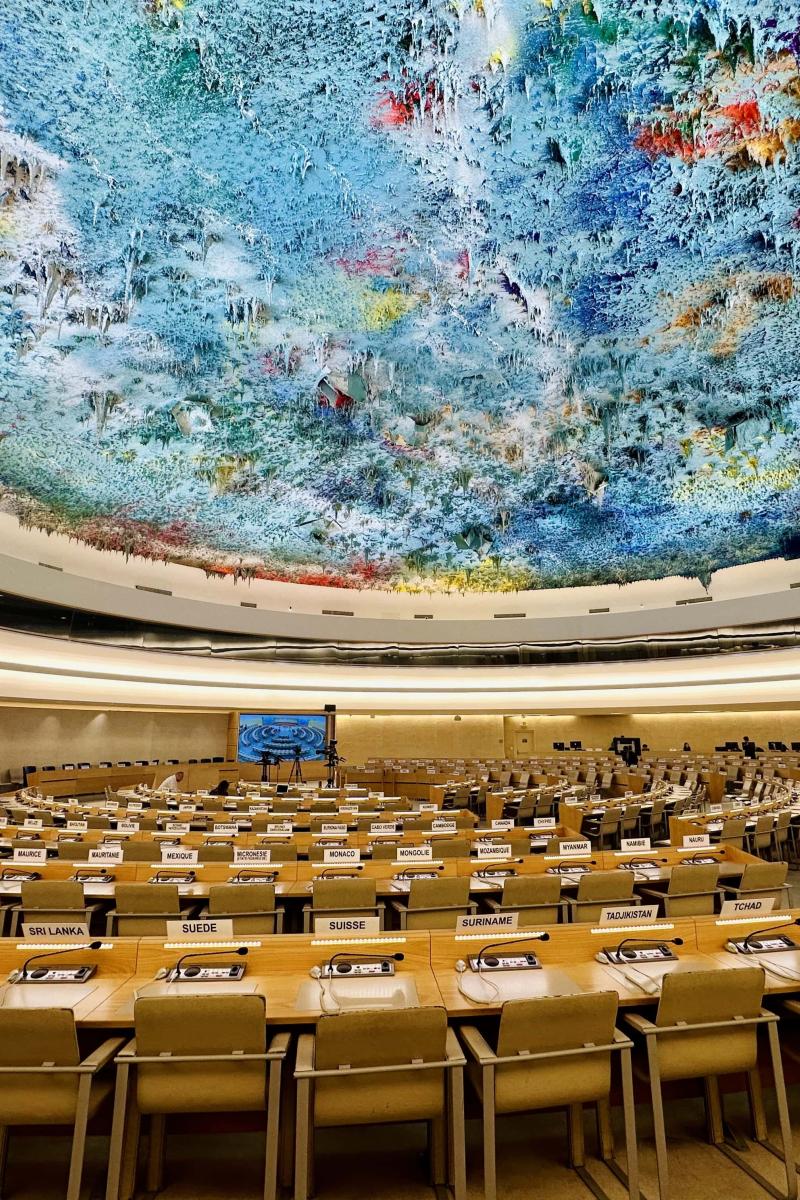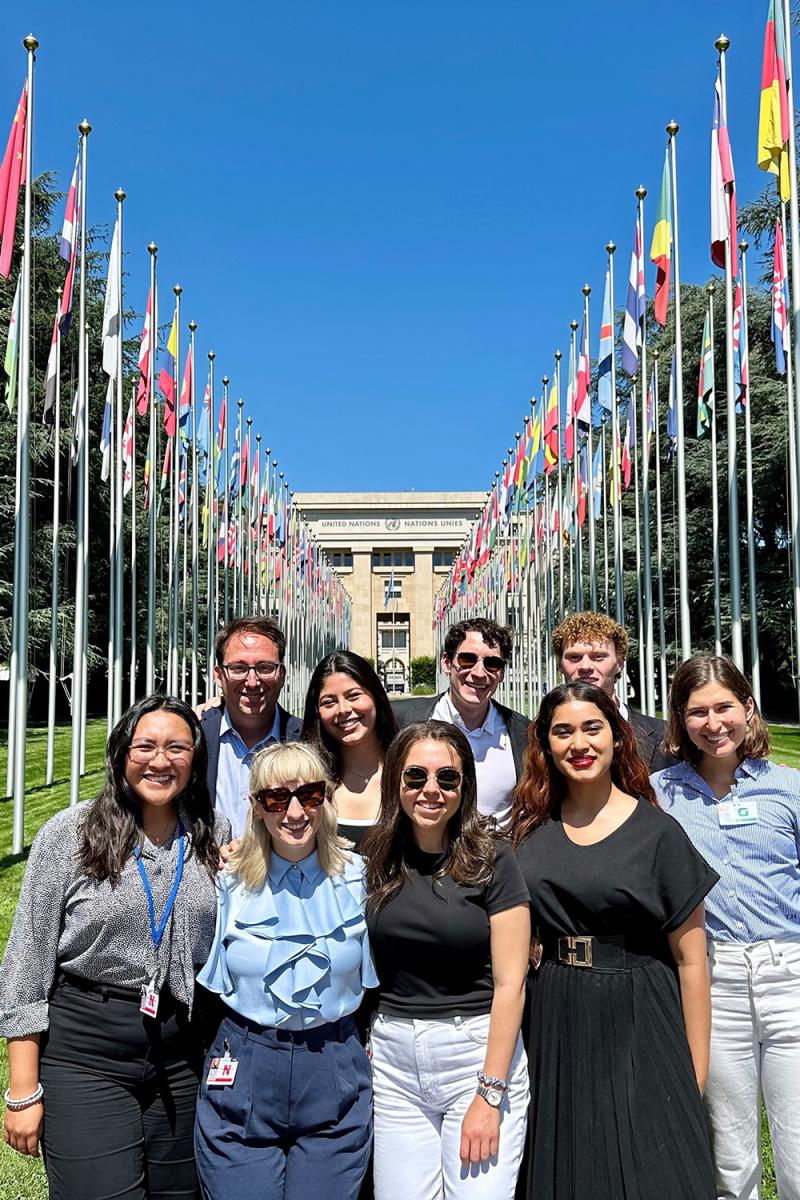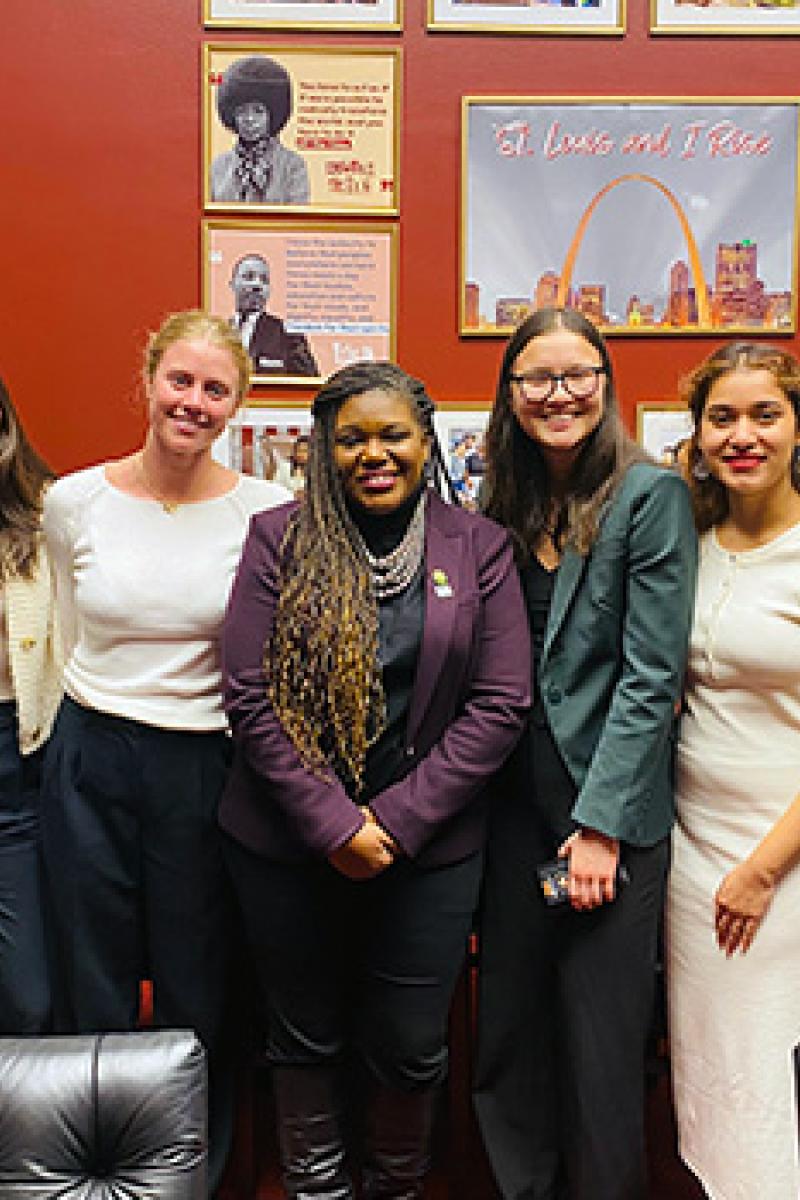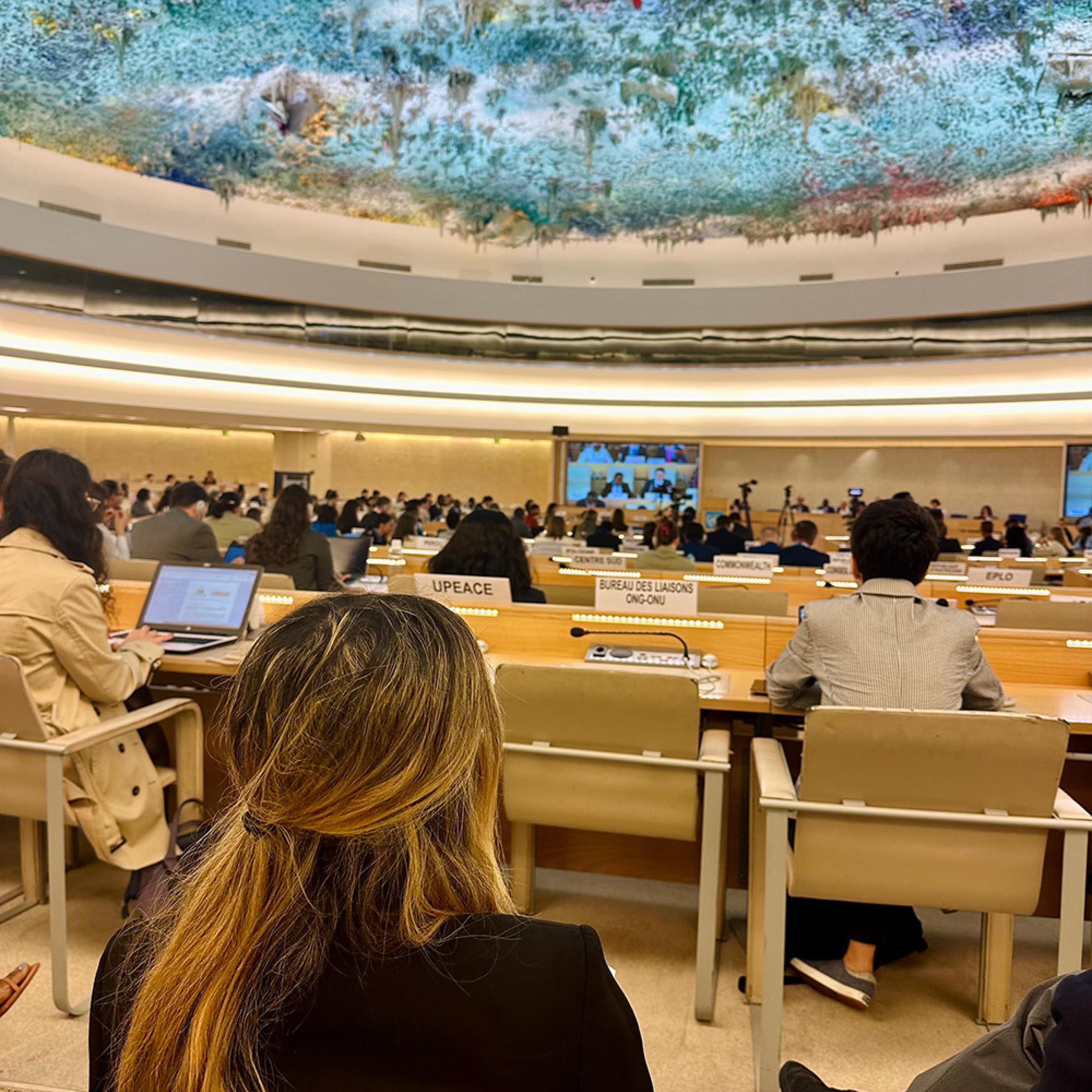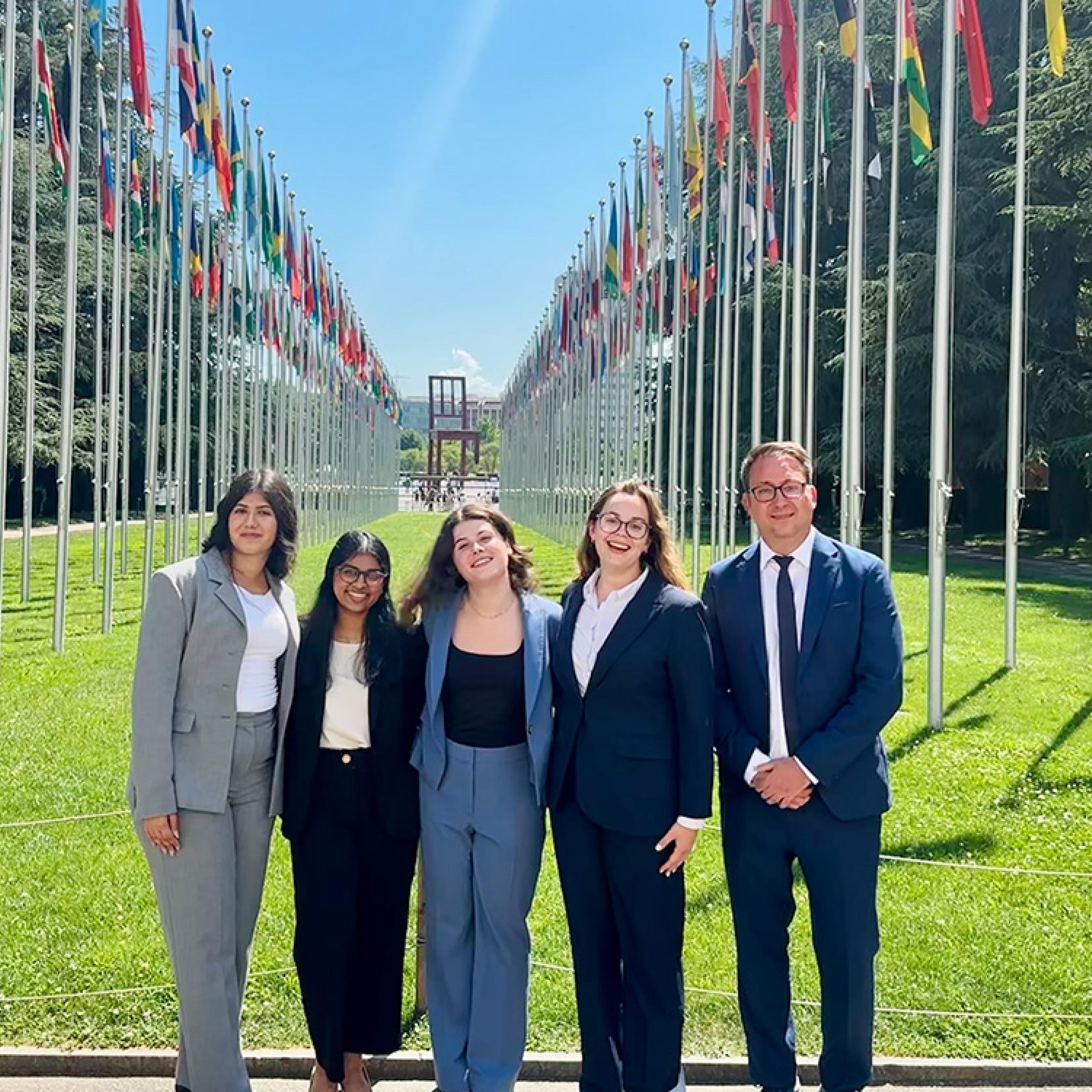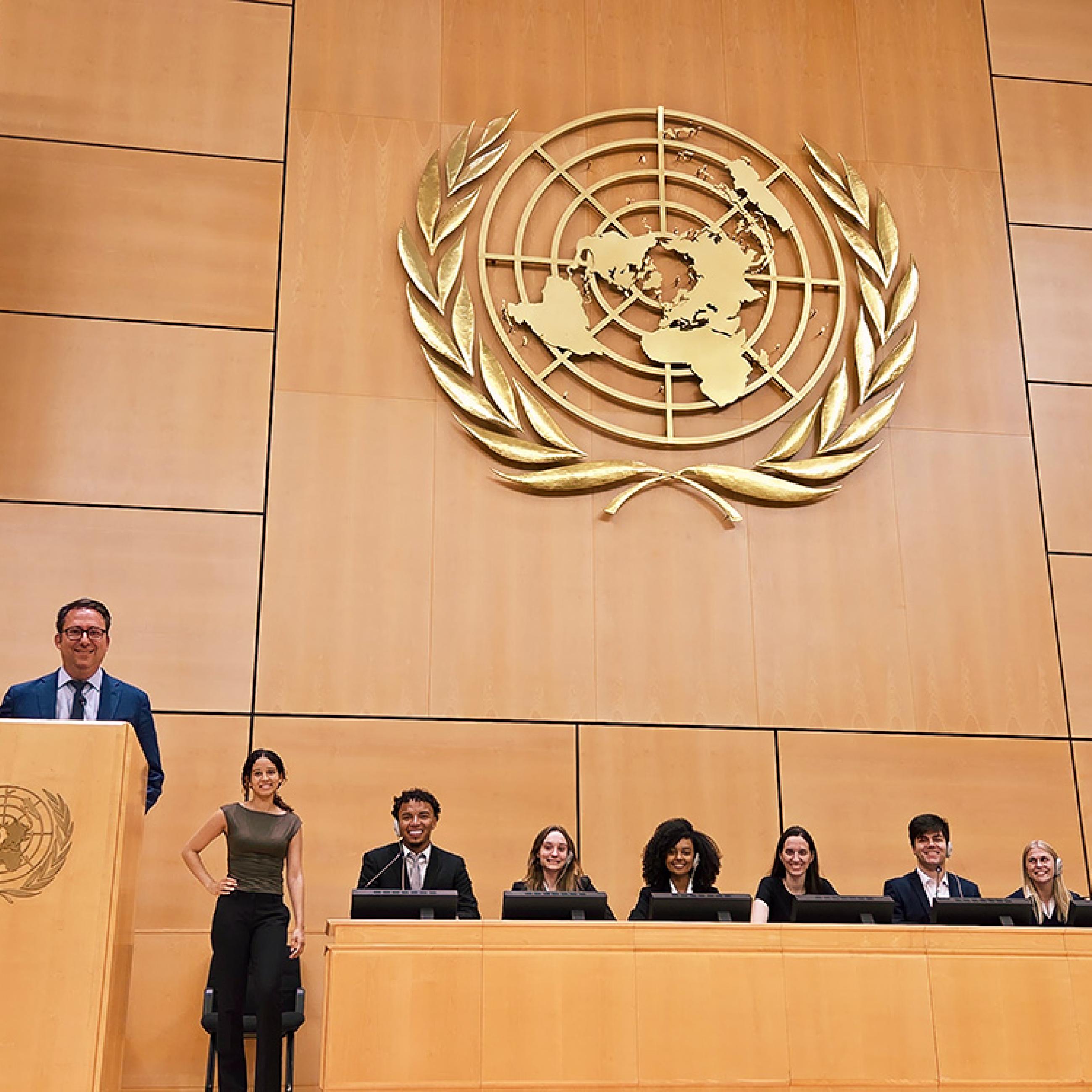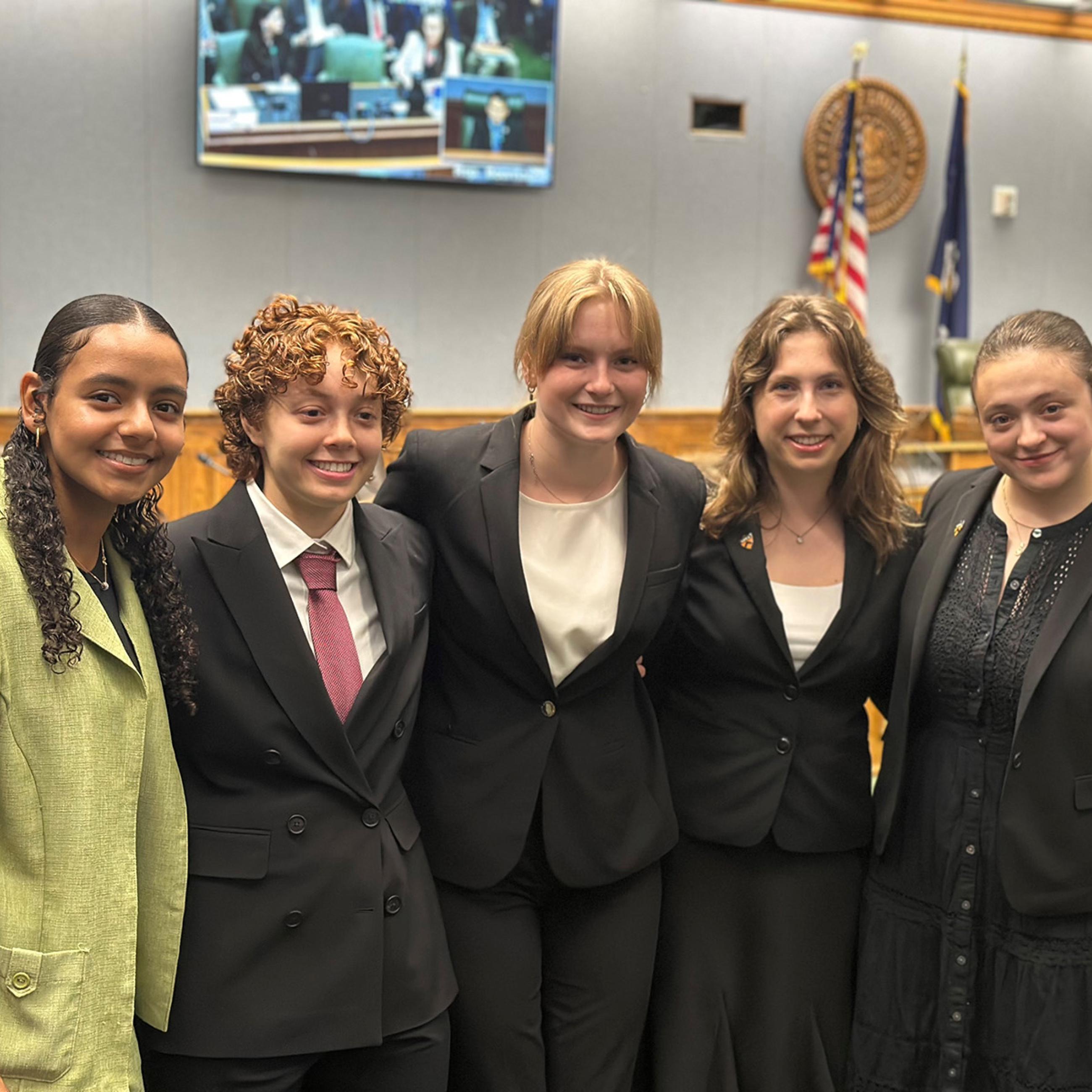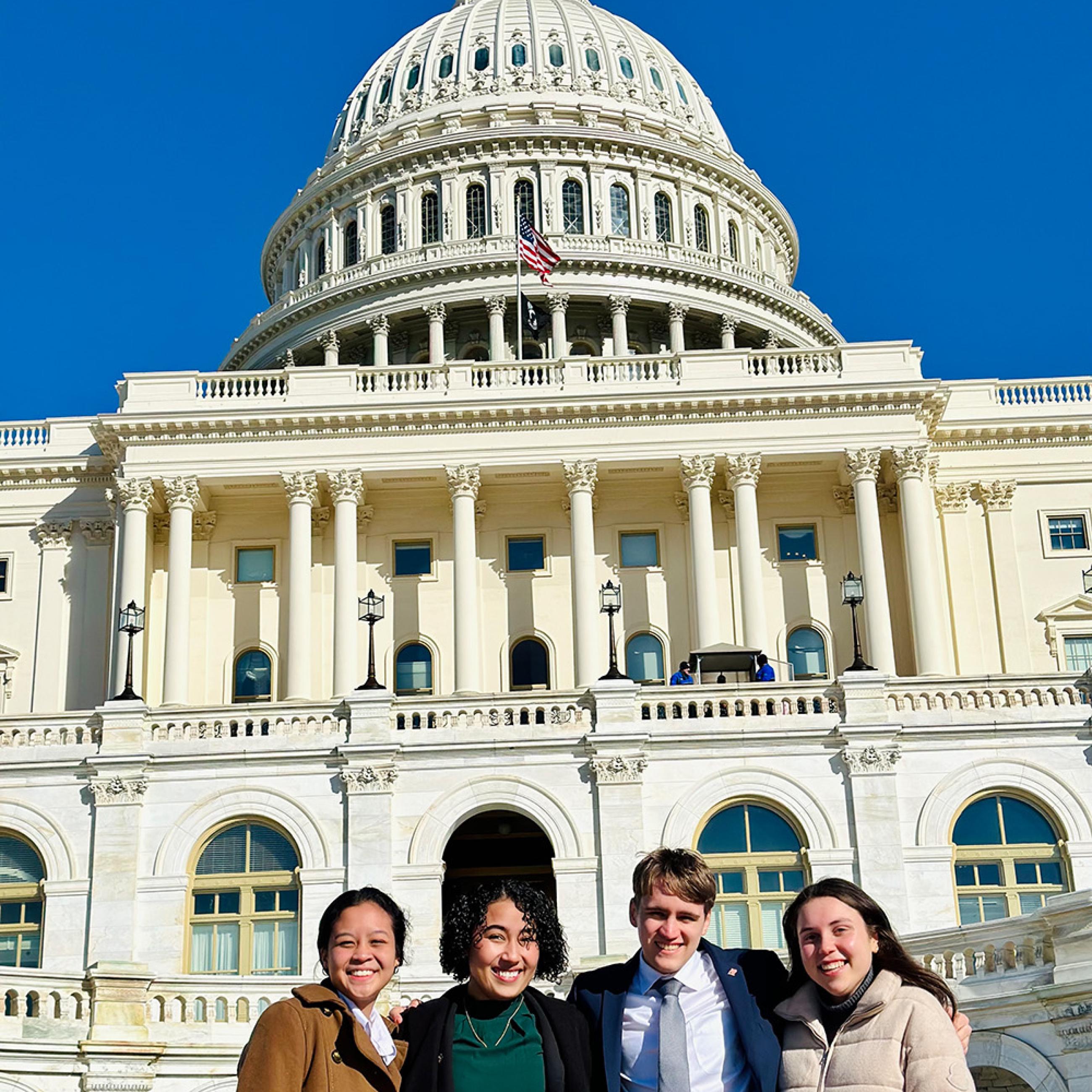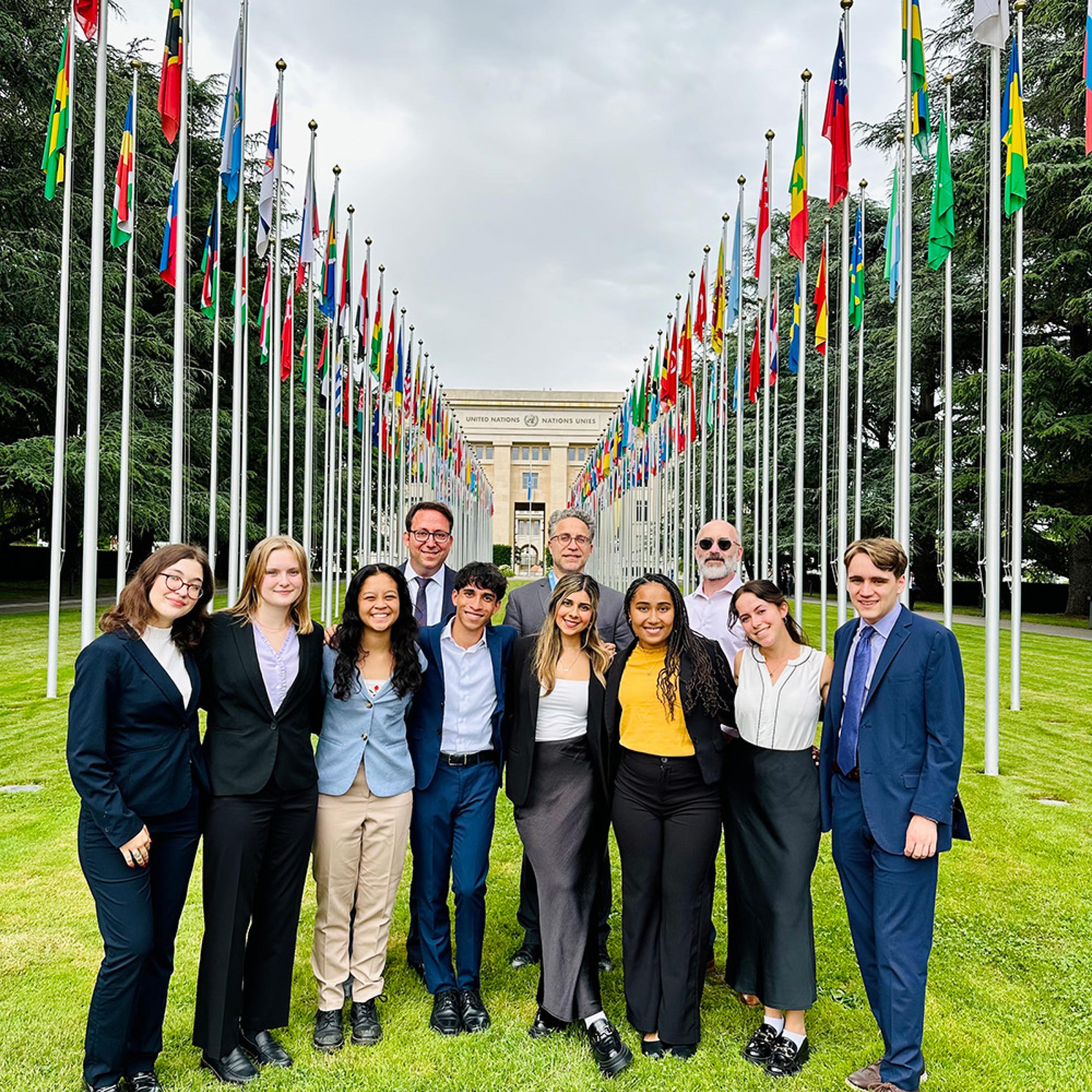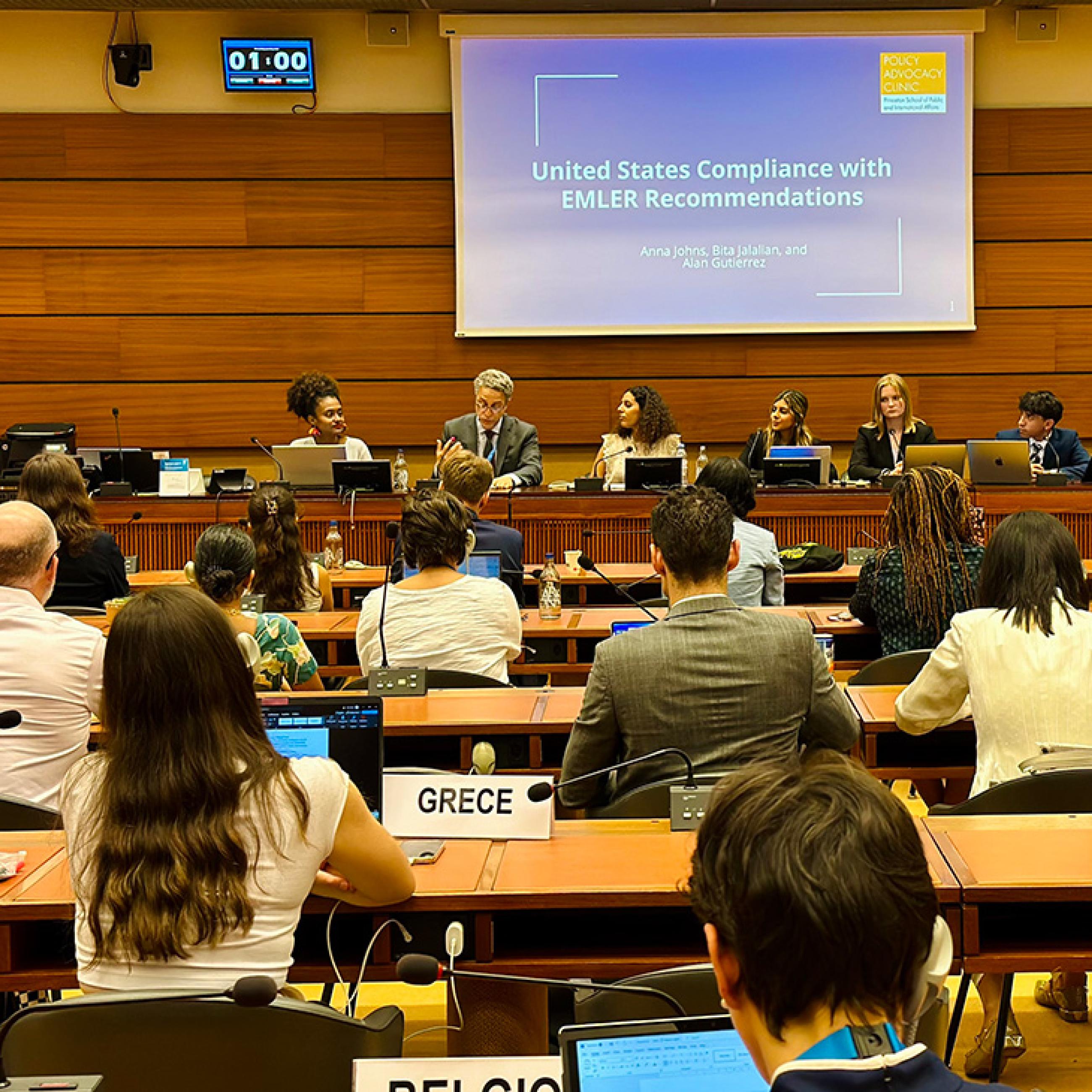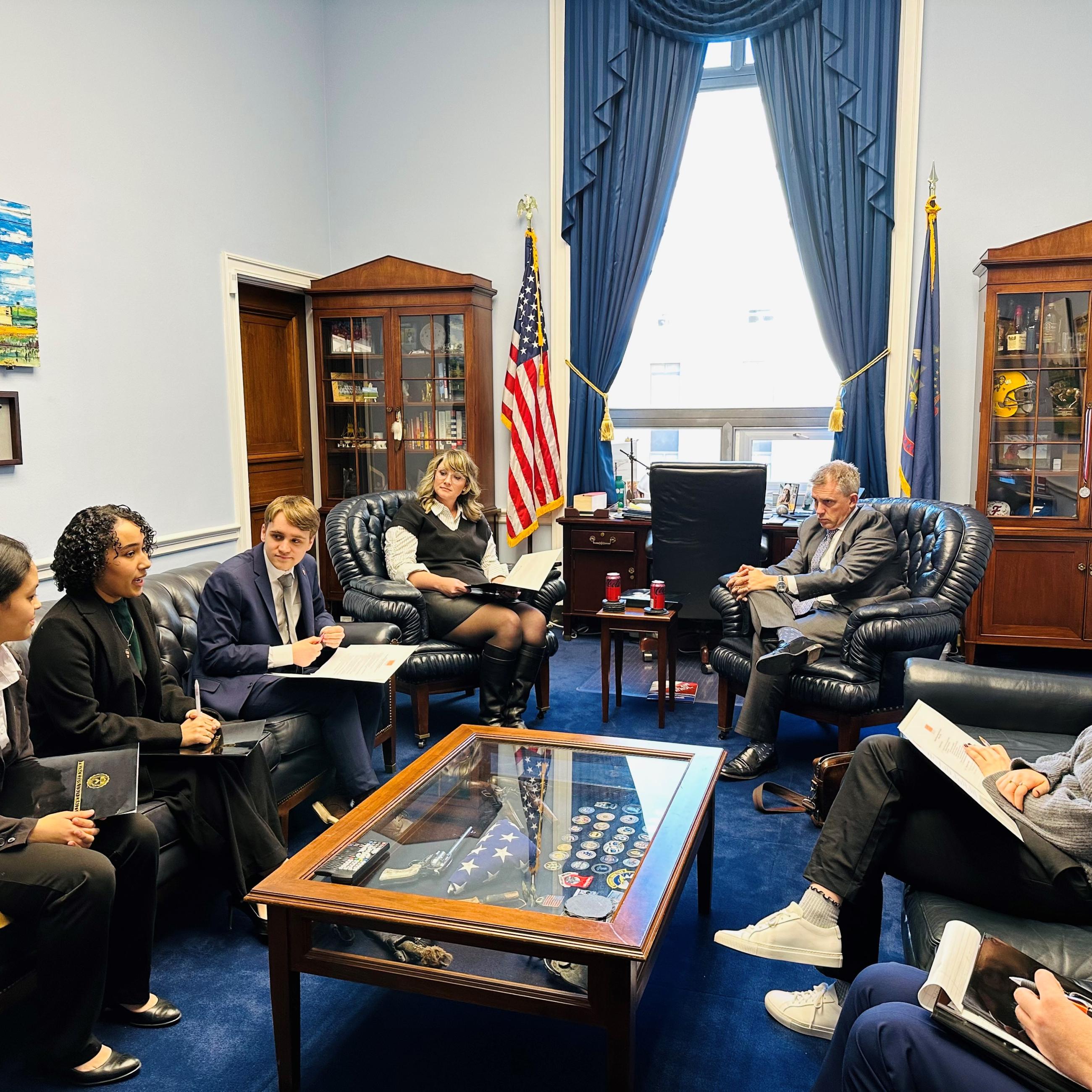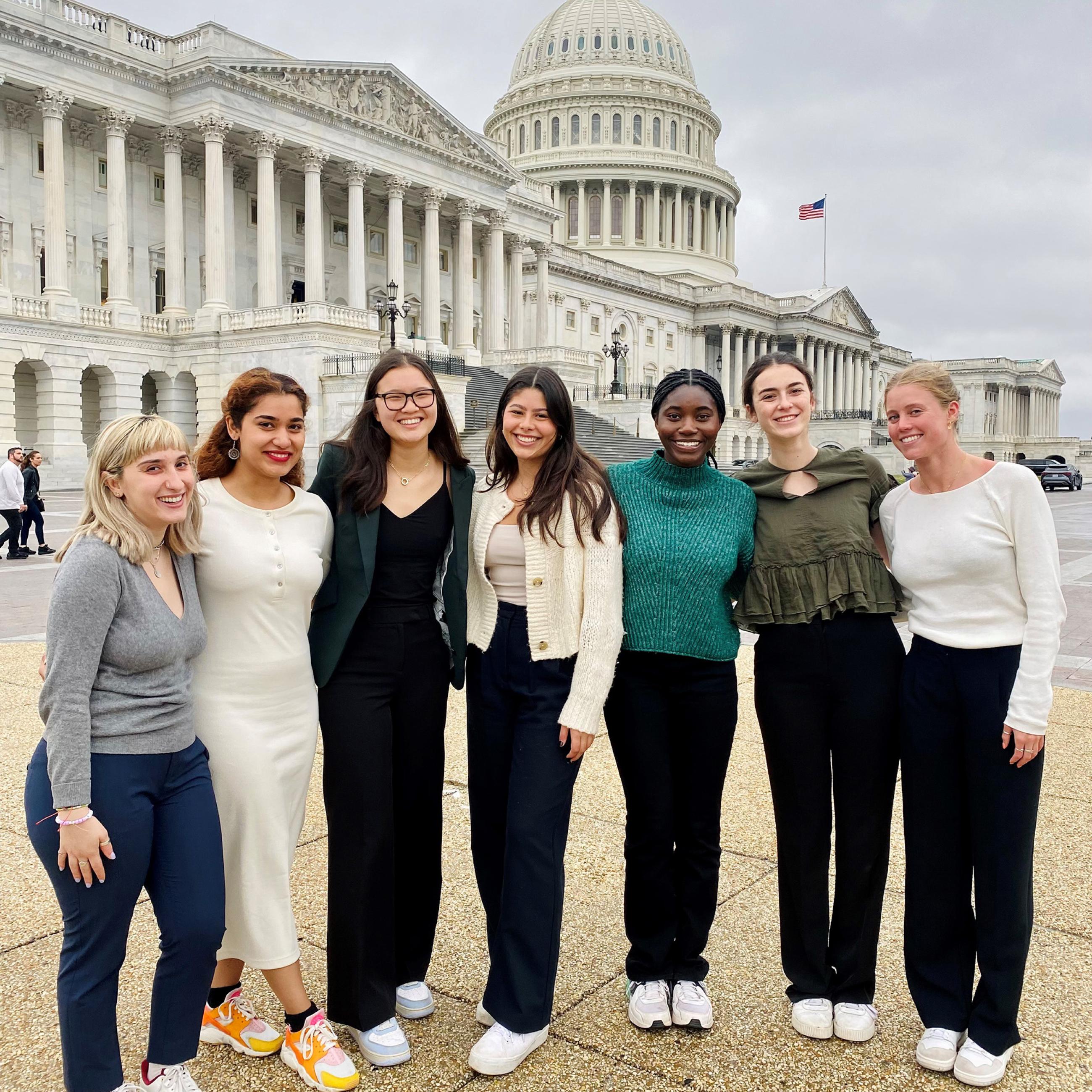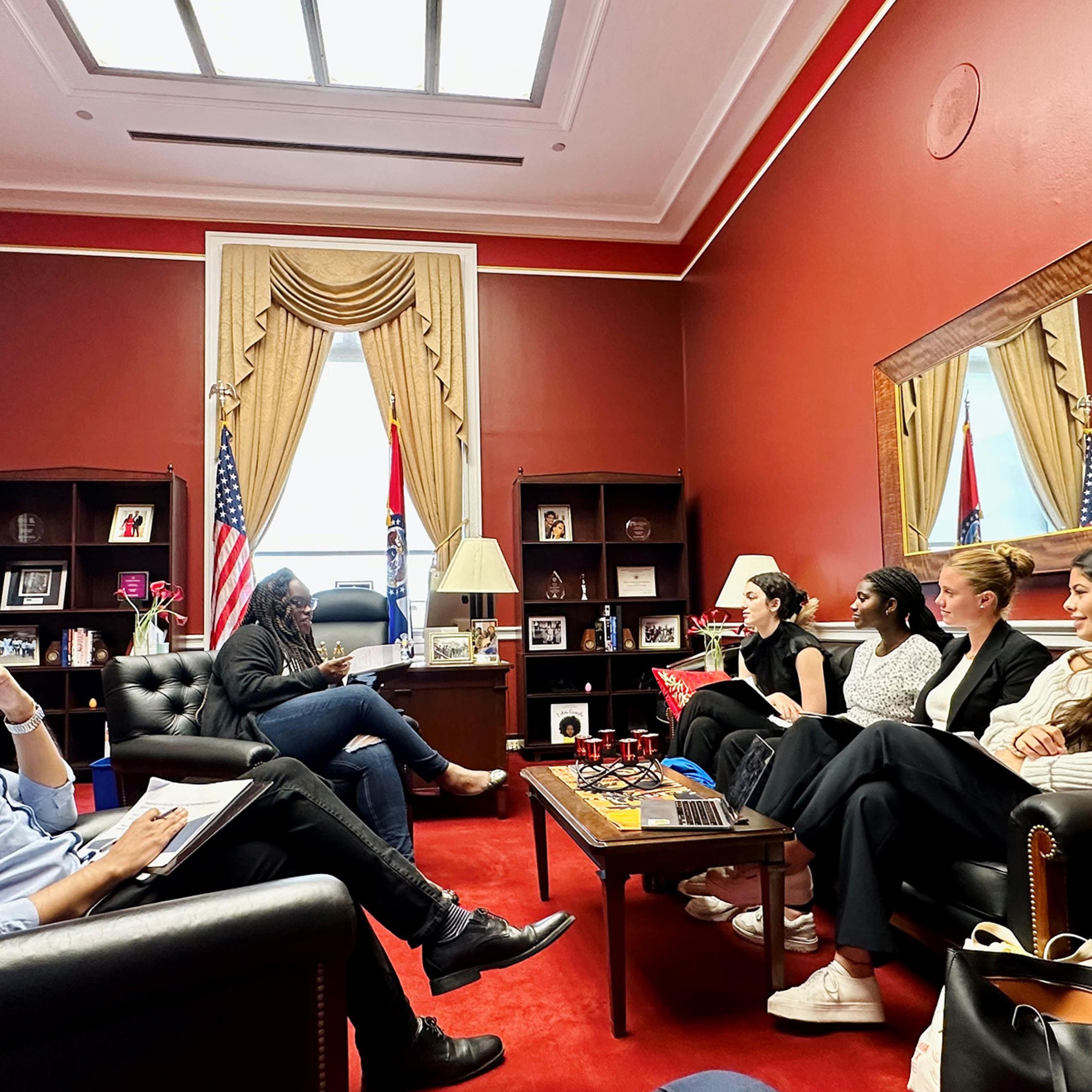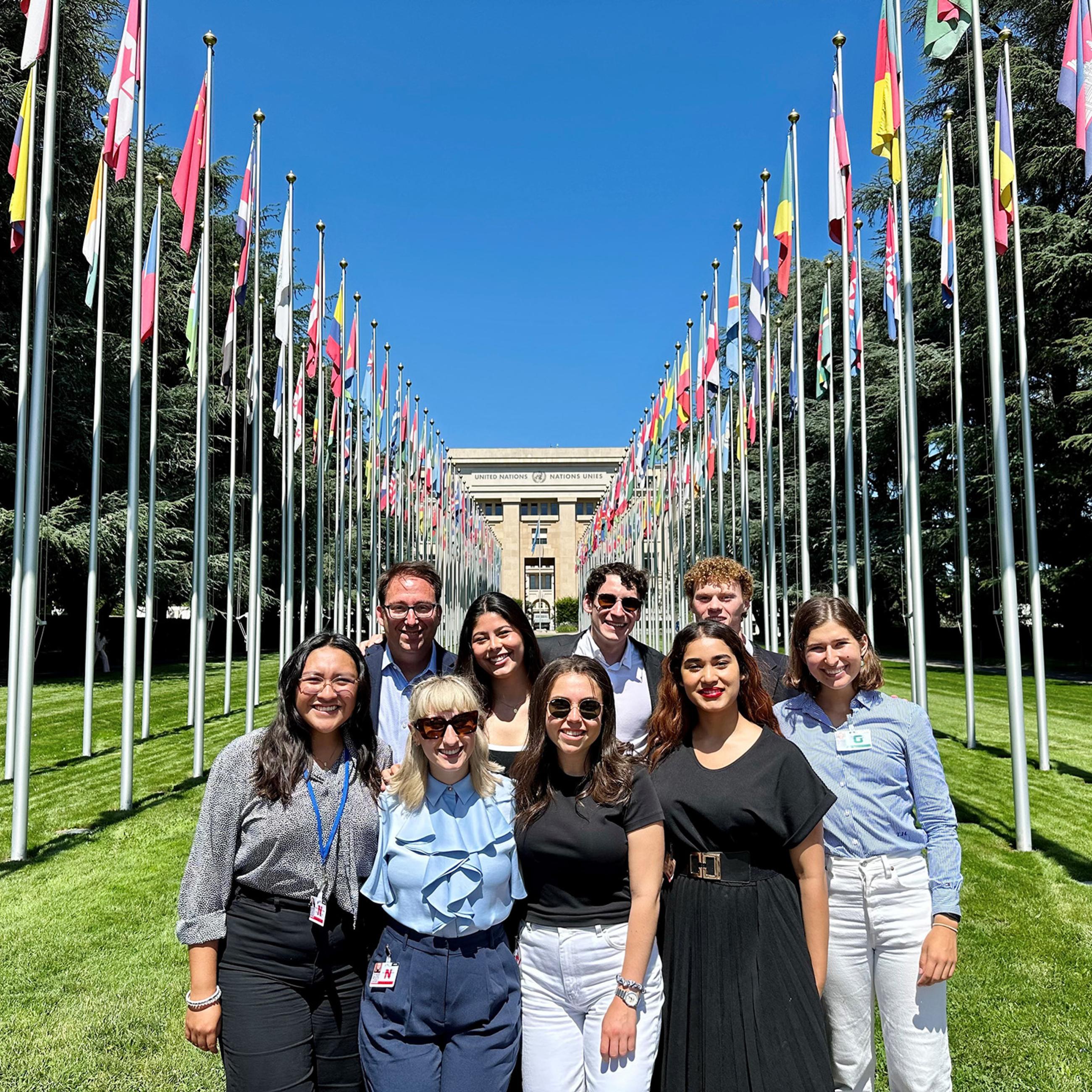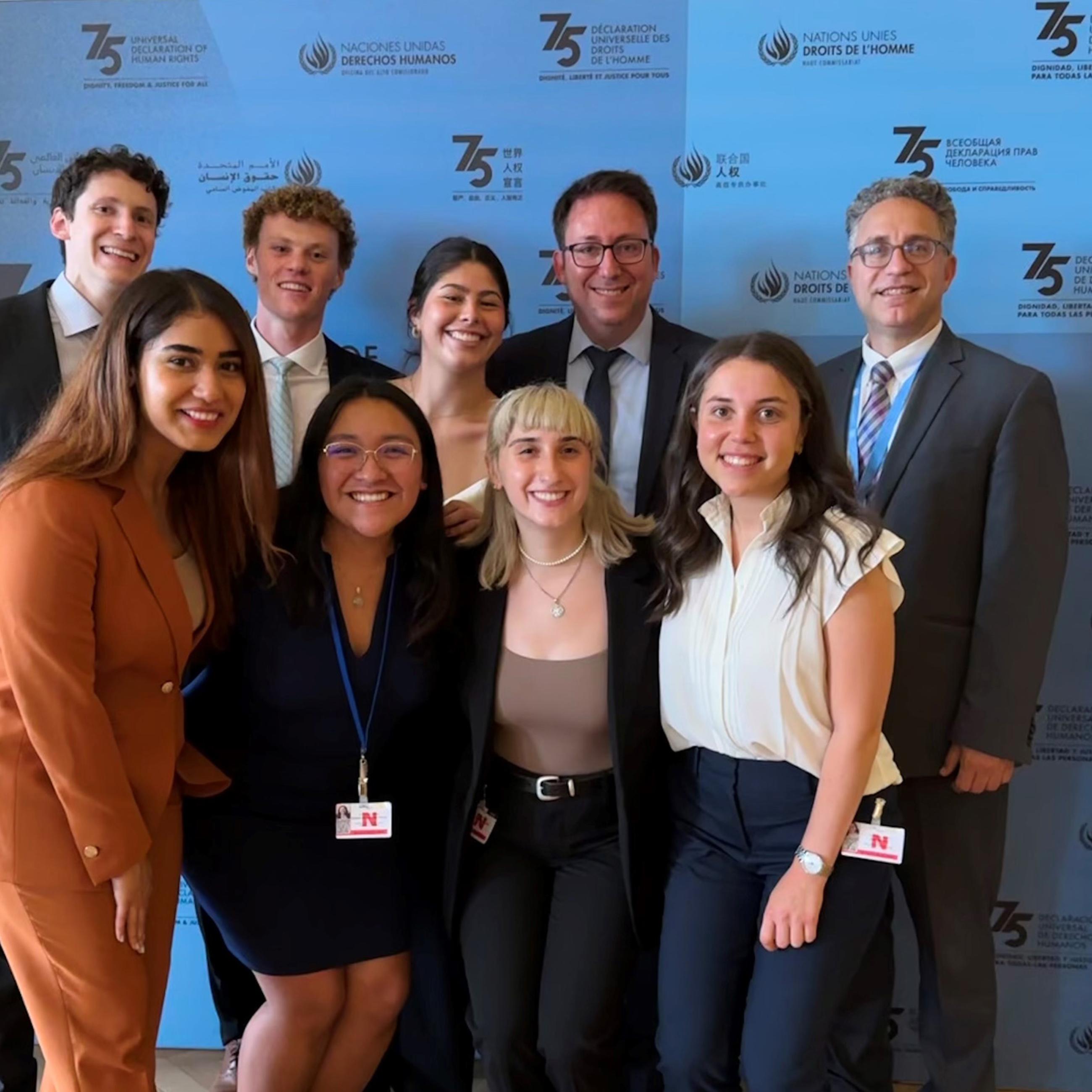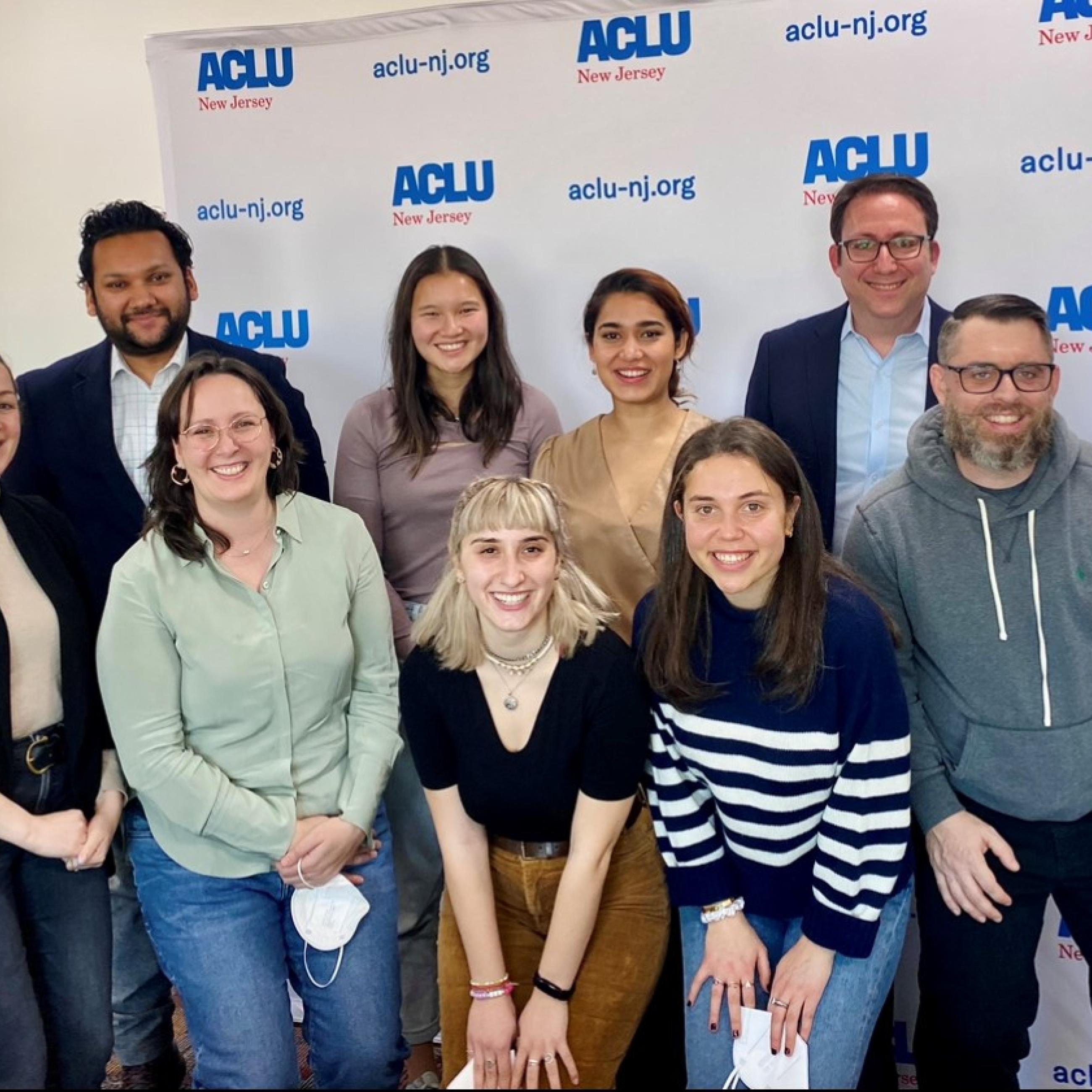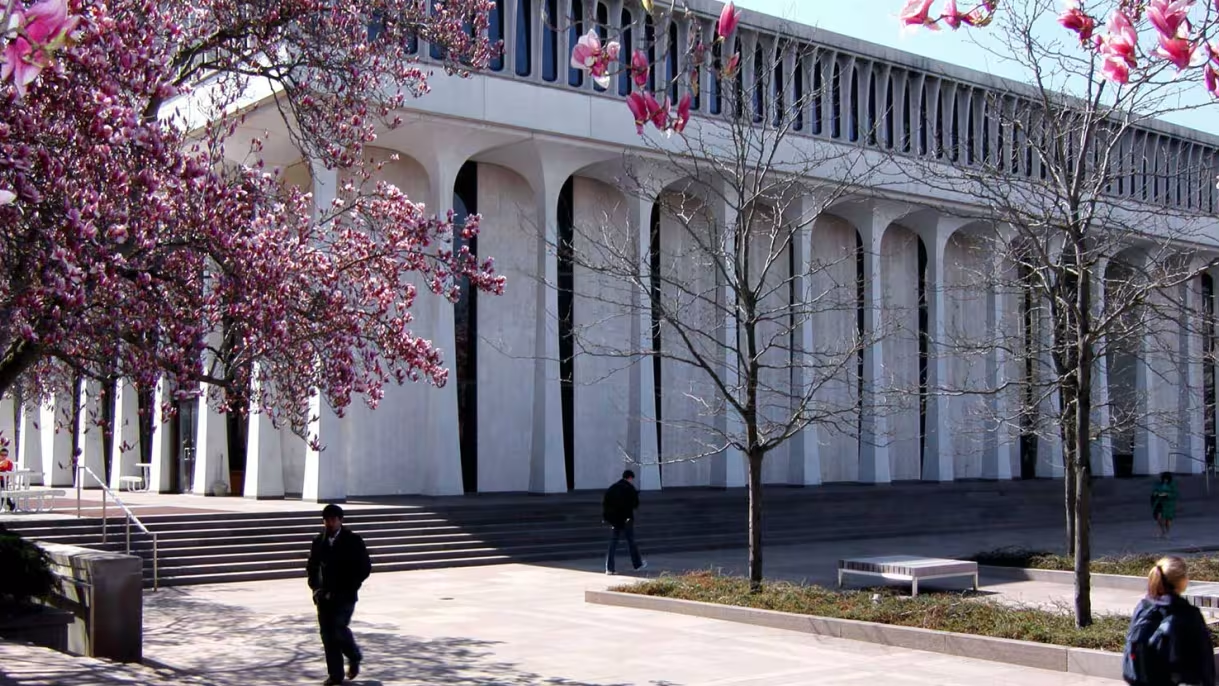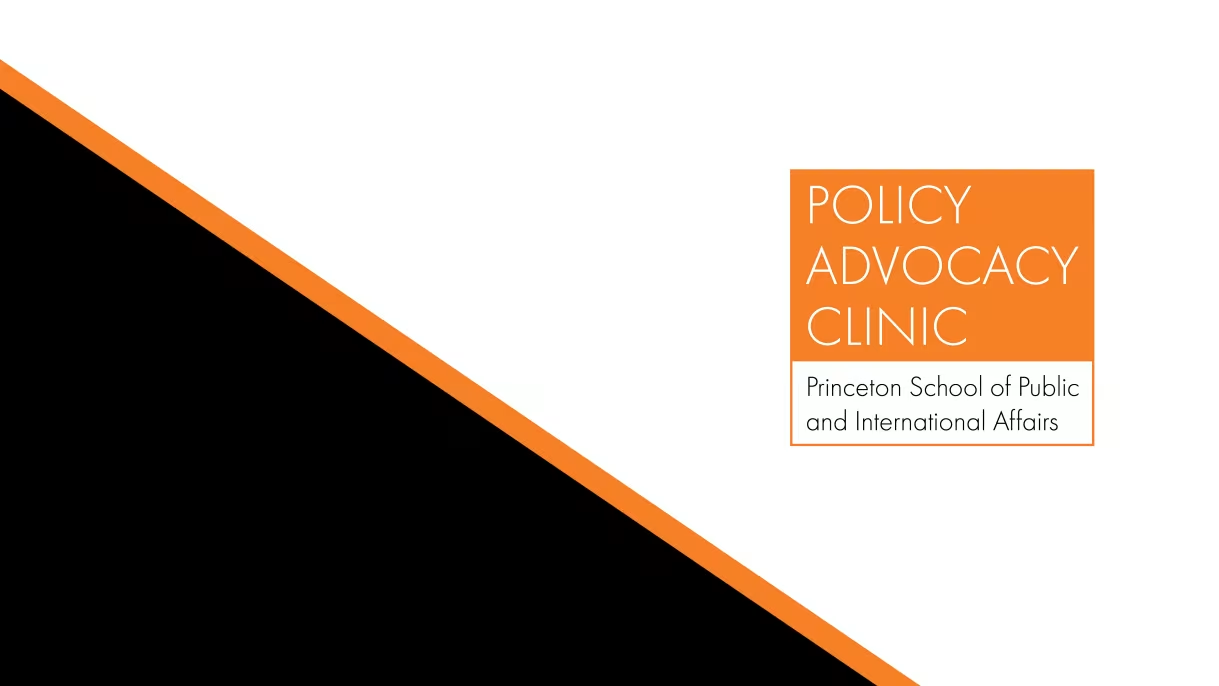
Princeton Policy Advocacy Clinic
Over two semesters, students first dive into the foundations of policymaking through a fall seminar, studying policy advocacy theory, legislative process and strategy, administrative law, data-driven analysis, and policy advocacy campaign planning tools such as political feasibility testing through power mapping and learning how to set policy advocacy goals, strategies and tactics. In the spring, students bring that knowledge to life. Working under close clinical faculty supervision, students work with external policy partners, whether policymakers or advocates, to advance a public policy issue on the state, federal and international level.
Since its founding in 2022, Clinic students have worked on 14 projects before the United Nations, Congress, and policymakers in Louisiana, New Jersey, and New York. Their projects have addressed issues at the forefront of public policy, including the death penalty, police use of force, the ethics and efficacy of artificial intelligence, solitary confinement, deaths in government custody, maternal health, immigration detention, the crack-powder cocaine sentencing disparity, and the criminalization of homelessness.
Through readings, class discussions, fieldwork, research and writing, and policy partner interactions, students learn, in a non-partisan manner, how to move an issue through the policy cycle. They learn how to write a persuasive policy memo, how to build a policy advocacy campaign, how to test political feasibility, and how to anchor policy advocacy in both data and principle. The Princeton Policy Advocacy Clinic empowers students not only to understand the policymaking process — but to help shape it.
By the end of the year, students will have learned about the policymaking process, gained practical skillsets on how to advance public policy, and have had an opportunity to apply these skills and knowledge to help advance an actual policy issue.

The Princeton Policy Advocacy Clinic is the first of its kind in the nation — immersing students in public policy advocacy in state capitals, in Congress, and at the United Nations. By coupling rigorous academic study with hands-on policy advocacy experience, the Clinic helps inspire and equip the next generation of ethical policymakers, principled changemakers, and social movement leaders.”
In the fall semester, students attend weekly seminar classes where they study a range of topics on the policymaking process, from theory to practice, including:
- Introduction to public policy, including theories and frameworks of policy development and the policy cycle.
- The legislative process and understanding the mechanics of the lawmaking powers of legislatures and the role of the executive.
- Introduction to administrative law and the formal and informal rulemaking process.
- Grounding in the international human rights system, learning how the United Nations monitors compliance with human rights treaties, investigates abuses, and engages with member states on human rights issues, and introduction to key institutions — including treaty bodies, Special Rapporteurs, and the Human Rights Council.
- Introduction to the role of social movements in advancing policy change, including reviewing examples from the right and left successfully setting a policy agenda and pushing for systemic change.
- Review of the policy analysis process, including how to identify problems, develop potential policy solutions and evaluative criteria, and draw conclusions.
- Campaign planning and development, including power-mapping as a feasibility analysis.
- Tactics used to advance the policymaking process, including organizing models and the role of communications strategies, both old and new, to advance policy goals.
- The limits of law and policy to drive social change, particularly when attempting to address systemic problems.
- Advice on how to pursue a career in public policymaking and advocacy.
Throughout the seminar an emphasis is placed on the interaction of public policy with movements for social change, studying how movements on both the right and left have been able to influence policymaking. These discussions center issues of race, power and privilege to help understand the policymaking process and how an issue evolves from an idea to policy action.
Students continue their study through the spring semester, where they enroll in the field component of the Policy Advocacy Clinic and work on specific projects with outside partners, all under the close supervision of the clinic professor. Students are assigned partners who seek assistance on public policy matters on the international, federal, state or municipal/county levels. Partners may include nongovernmental organizations working to advance a particular public policy matter or local or federal lawmakers who need assistance with a specific policy goal.
Each year, students will work on different projects that are ripe for involvement. Specific projects may include:
- Drafting policy analysis memos, which define and analyze a social problem, survey policy alternatives, apply evaluative criteria, and make policy recommendations.
- Drafting legislation, rules, regulations, and executive orders for NGOs or policymakers.
- Drafting public testimony, including for hearings before local, state, federal or international bodies, to support existing or future efforts.
- Assisting in drafting campaign plans and engaging in power-mapping exercises.
- Drafting and producing public education materials, such as reports, fact sheets, policy briefs, webinars and explanatory videos to support policy efforts.
- Collecting and analyzing public opinion data, including producing original polling.
- Creating legislative and communications advocacy tools, such as action alerts, talking points, social media toolkits, and more.
- Organizing community meetings, public forums, briefing sessions and other events to advance the policy process.
Students will gain real-world experience through their field work, including by interacting with policymakers and their staff, attending hearings and coalition and community meetings, providing testimony, canvassing communities, engaging in media advocacy, meeting with lawmakers (in compliance with SPIA protocols) and more.
A 195-page report, submitted to the UN Special Rapporteur on extrajudicial, summary, or arbitrary executions in Geneva, Switzerland analyzing death penalty practices in the United States and whether they violate international human rights law.
A 269-page report for the Office of the United Nations High Commissioner for Human Rights focusing on United States Compliance with the United Nations Convention Against Torture, including when it comes to the criminalization of homelessness, immigration detention practices, police use of force, and solitary confinement, and presenting the research in Geneva, Switzerland.
Policy brief analyzing the impact of passage of the EQUAL Act in Congress— bipartisan legislation that would eliminate the 18-to-1 sentencing disparity between crack and powder cocaine offenses, working with Congress Member Kelly Armstrong (R-ND) and Untied State Senator Cory Booker (D-NJ) in releasing the policy brief.
A 581-page memo submitted to civil rights advocates in Louisiana reviewing the last 25 years of bipartisan criminal justice reform legislation across 14 southern states, analyzing more than 1,300 bills, then distilling it into a four-page briefer, and presenting their findings to both the Black Legislative Caucus and Republican Legislative Caucus of the Louisiana Legislature.
A 158-page report on the United States’ compliance with the International Covenant on Civil and Political Rights (ICCPR) on eight issue areas related to criminal justice matters, including felony disenfranchisement, solitary confinement, the death penalty, racial disparities in cash bail, facial recognition technology by law enforcement, police enforcement of drug laws, and more. The student report included 55 recommended questions for the United Nations Human Rights Committee to ask the United States and 46 policy recommendations for the UN to make to the US. The report was produced for the ACLU and a summary was jointly submitted to the United Nations Human Rights Committee.
A 140-page policy analysis memo for Congress Member Cori Bush evaluating eight issue areas related to juvenile justice and recommending concrete steps for the Congress Member to take on juvenile justice reform. Policy issues covered in the report included juvenile solitary confinement, juvenile life without parole sentences, police and disciplinary practices in schools, racial disparities in the juvenile justice system, and more.
A 101-page campaign advocacy plan on the issue of civilian oversight of police, including goals, strategies, tactics and assets to create strong and independent Civilian Complaint Review Boards in New Jersey. The campaign plan was developed following a power mapping session led by the students working with the ACLU of New Jersey and New Jersey Communities for Accountable Policing.
The Princeton Policy Advocacy Clinic has so far worked with more than 10 policy partners, including:
ACLU Human Rights Program
ACLU of Louisiana
ACLU of New Jersey
Congress Member Cori Bush (D-MO)
Congress Member Kelly Armstrong (R-ND)
New Jersey Communities for Accountable Policing
New Jersey Division of Medical Assistance and Health Services
New York State Attorney General Office
Office of the United Nations High Commissioner for Human Rights
United Nations High Commissioner for Refugees
United Nation Special Rapporteur on extrajudicial, summary, or arbitrary executions




